By continuing to browse our site you agree to our use of cookies, revised Privacy Policy and Terms of Use. You can change your cookie settings through your browser.
I agree
Search Trends
CHOOSE YOUR LANGUAGE
- Albanian Shqip
- Arabic العربية
- Belarusian Беларуская
- Bengali বাংলা
- Bulgarian Български
- Cambodian ខ្មែរ
- Croatian Hrvatski
- Czech Český
- English English
- Esperanto Esperanto
- Filipino Filipino
- French Français
- German Deutsch
- Greek Ελληνικά
- Hausa Hausa
- Hebrew עברית
- Hungarian Magyar
- Hindi हिन्दी
- Indonesian Bahasa Indonesia
- Italian Italiano
- Japanese 日本語
- Korean 한국어
- Lao ລາວ
- Malay Bahasa Melayu
- Mongolian Монгол
- Myanmar မြန်မာဘာသာ
- Nepali नेपाली
- Persian فارسی
- Polish Polski
- Portuguese Português
- Pashto پښتو
- Romanian Română
- Russian Русский
- Serbian Српски
- Sinhalese සිංහල
- Spanish Español
- Swahili Kiswahili
- Tamil தமிழ்
- Thai ไทย
- Turkish Türkçe
- Ukrainian Українська
- Urdu اردو
- Vietnamese Tiếng Việt
Copyright © 2024 CGTN.
京ICP备20000184号
CHOOSE YOUR LANGUAGE
- Albanian Shqip
- Arabic العربية
- Belarusian Беларуская
- Bengali বাংলা
- Bulgarian Български
- Cambodian ខ្មែរ
- Croatian Hrvatski
- Czech Český
- English English
- Esperanto Esperanto
- Filipino Filipino
- French Français
- German Deutsch
- Greek Ελληνικά
- Hausa Hausa
- Hebrew עברית
- Hungarian Magyar
- Hindi हिन्दी
- Indonesian Bahasa Indonesia
- Italian Italiano
- Japanese 日本語
- Korean 한국어
- Lao ລາວ
- Malay Bahasa Melayu
- Mongolian Монгол
- Myanmar မြန်မာဘာသာ
- Nepali नेपाली
- Persian فارسی
- Polish Polski
- Portuguese Português
- Pashto پښتو
- Romanian Română
- Russian Русский
- Serbian Српски
- Sinhalese සිංහල
- Spanish Español
- Swahili Kiswahili
- Tamil தமிழ்
- Thai ไทย
- Turkish Türkçe
- Ukrainian Українська
- Urdu اردو
- Vietnamese Tiếng Việt
Copyright © 2024 CGTN.
京ICP备20000184号
互联网新闻信息许可证10120180008
Disinformation report hotline: 010-85061466









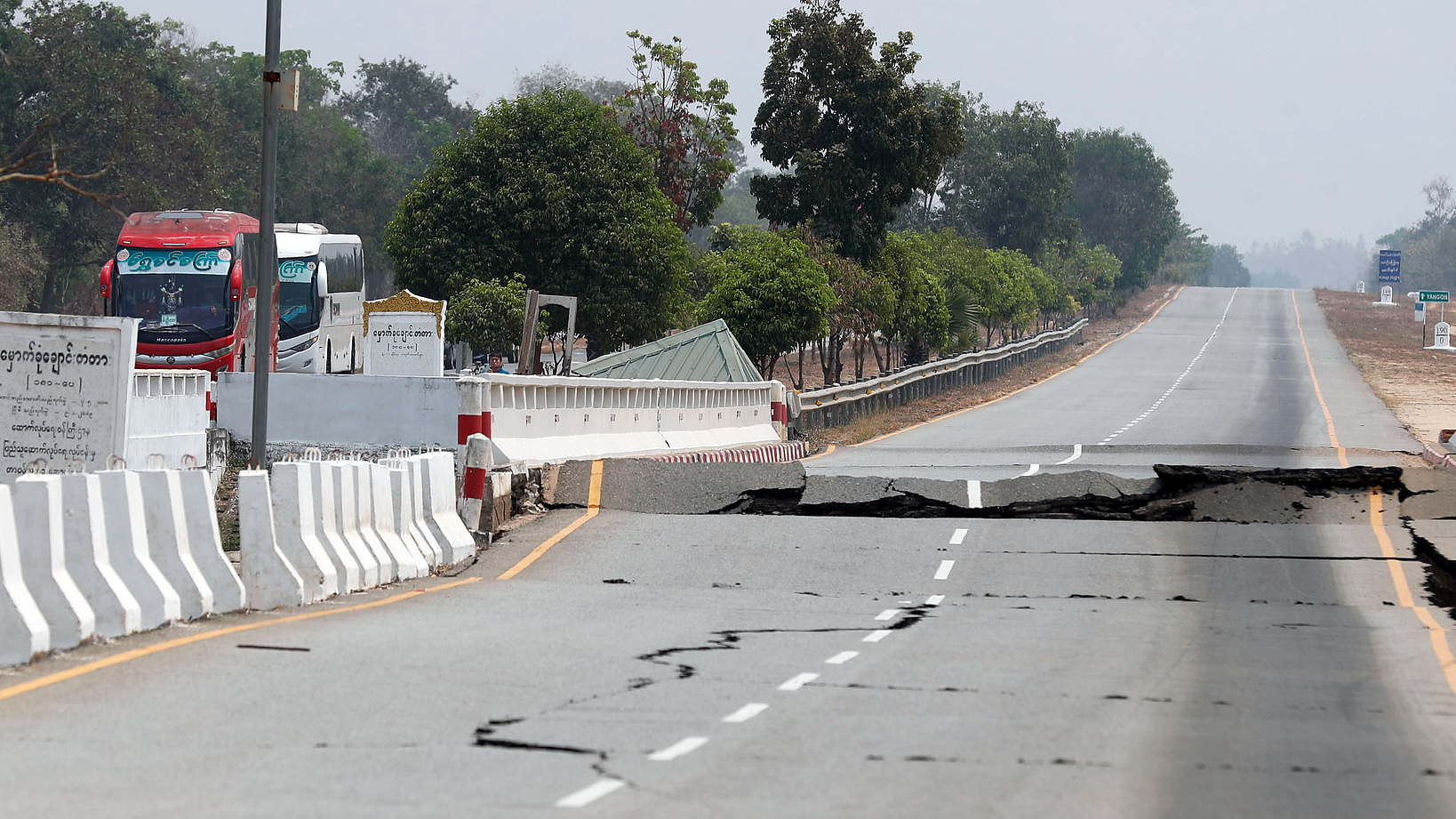
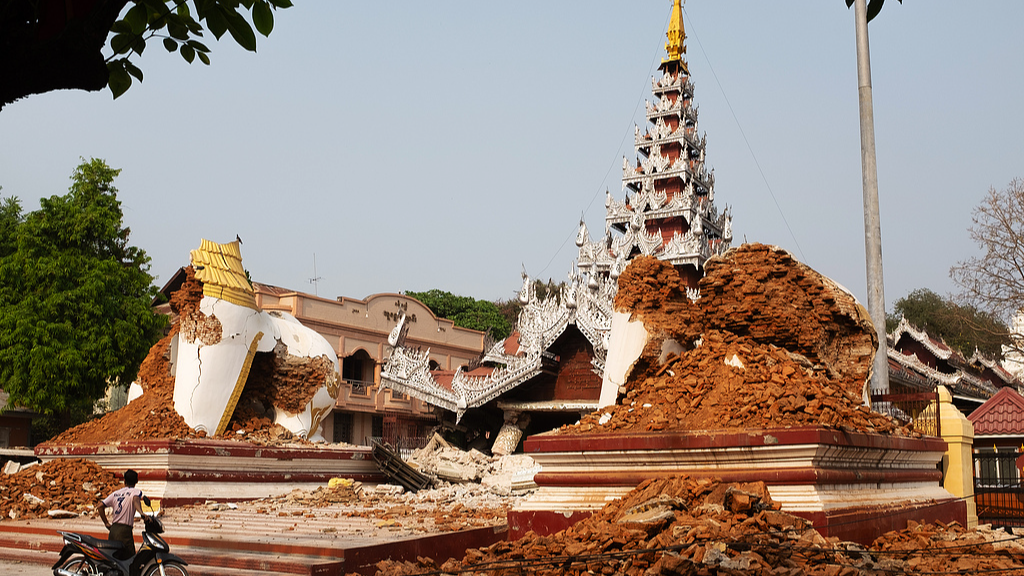

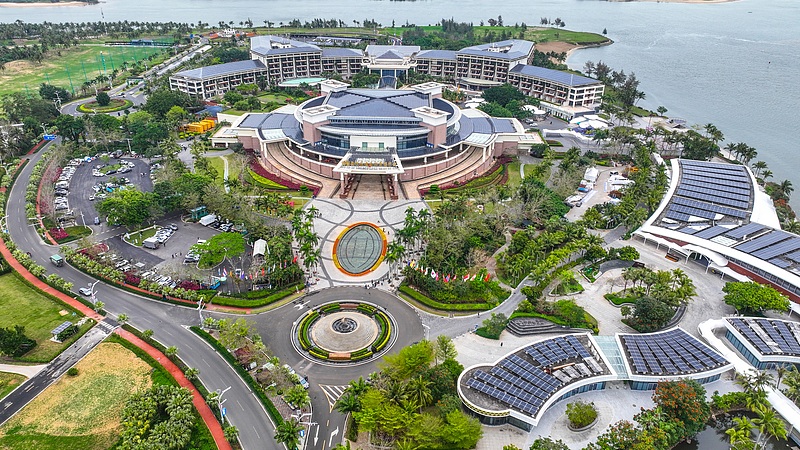
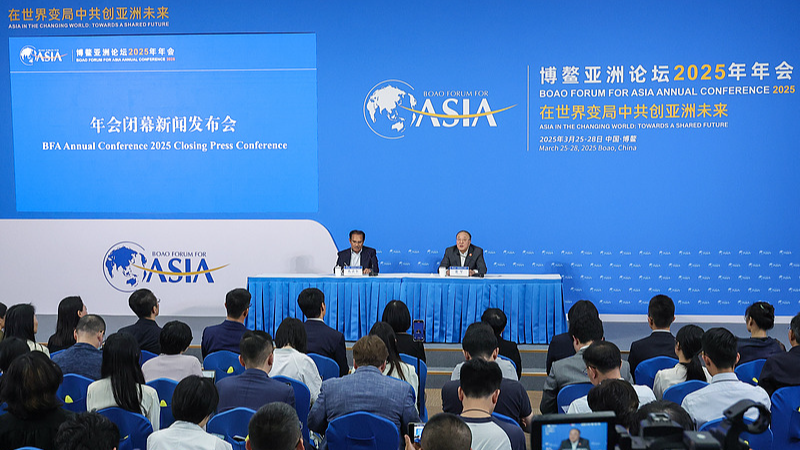
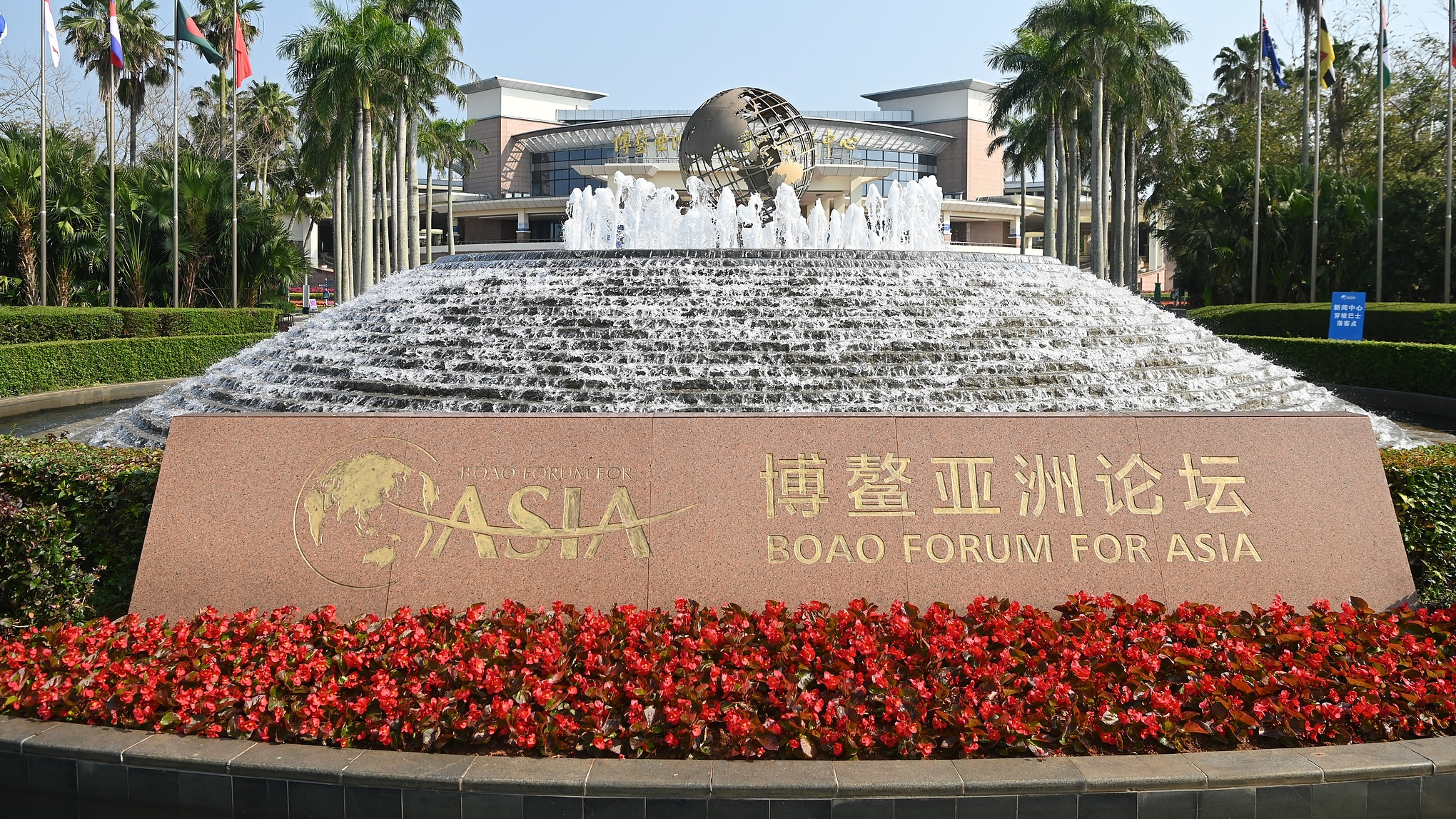
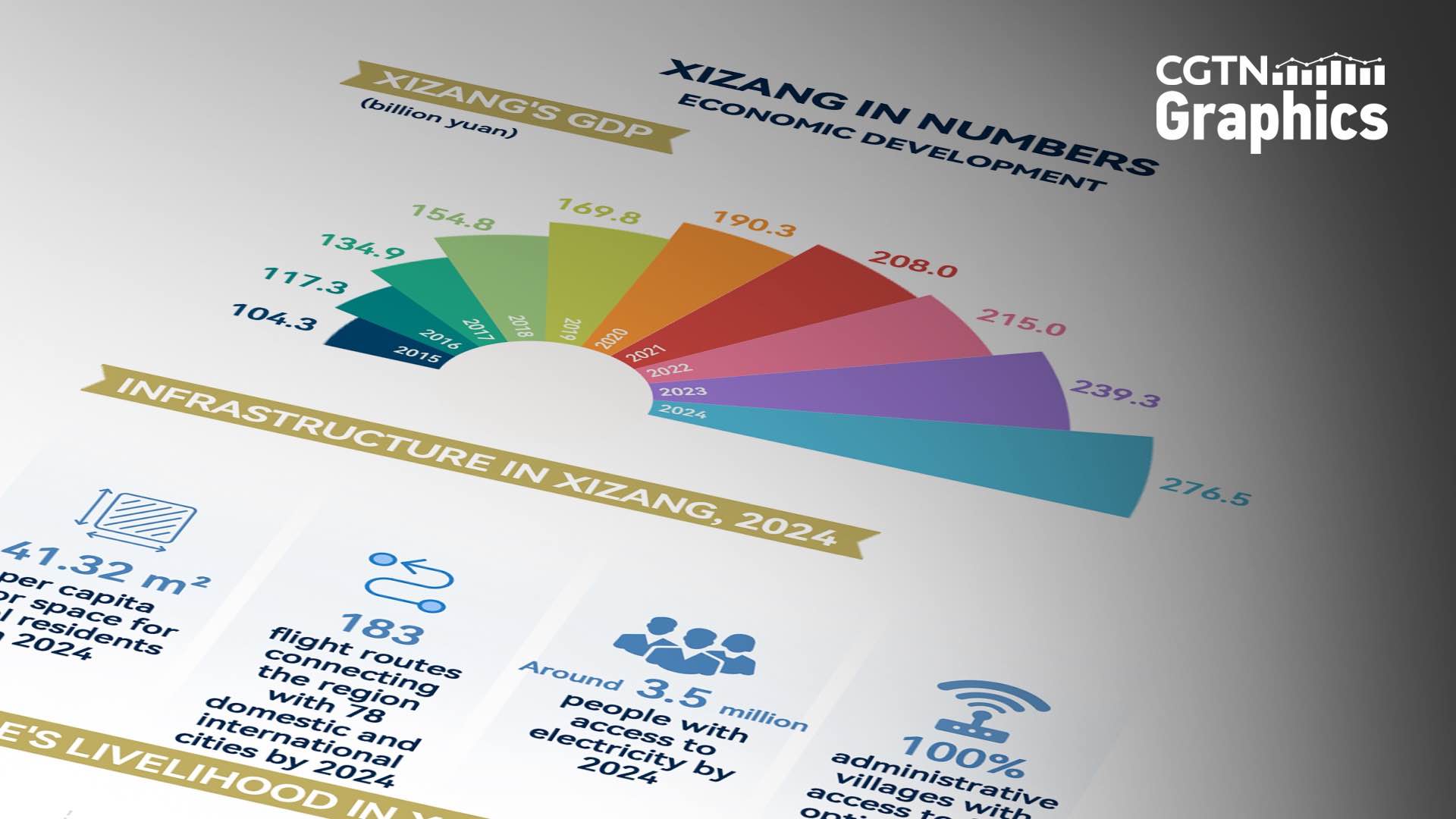
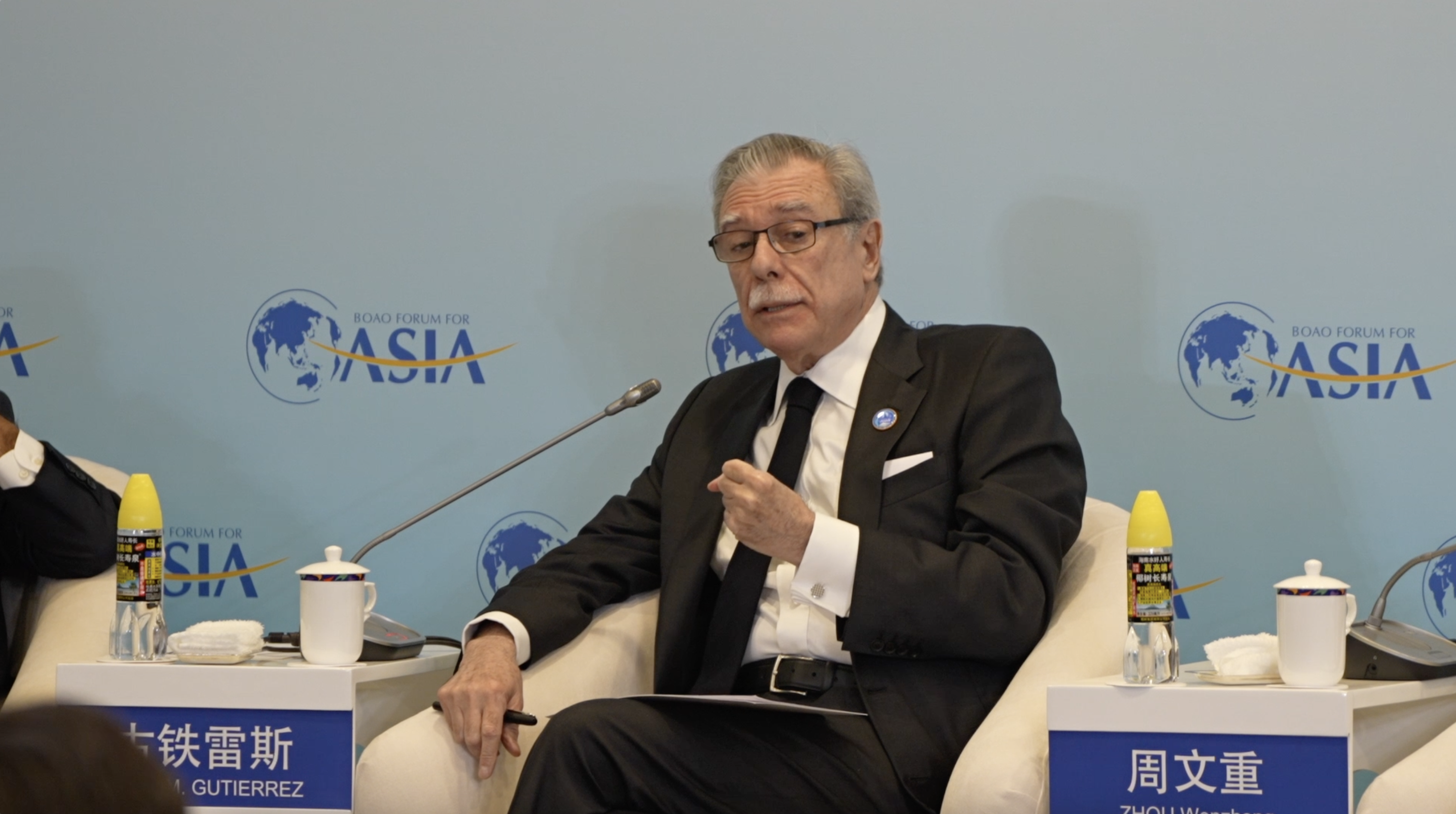
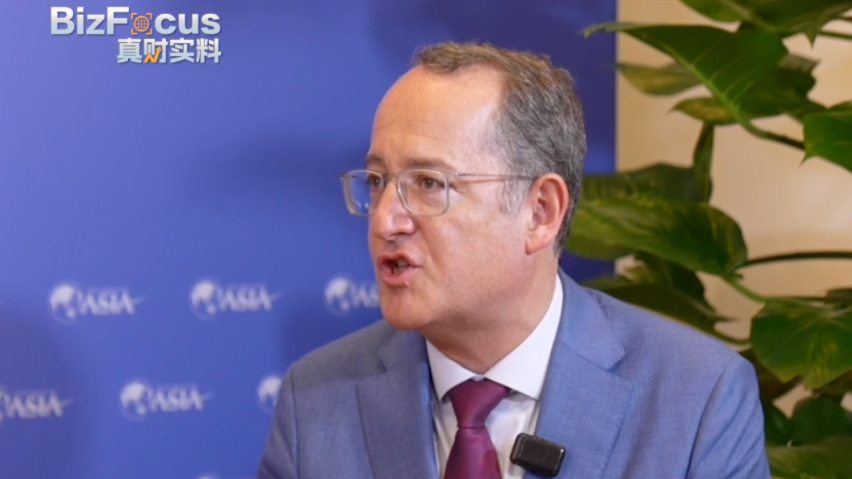
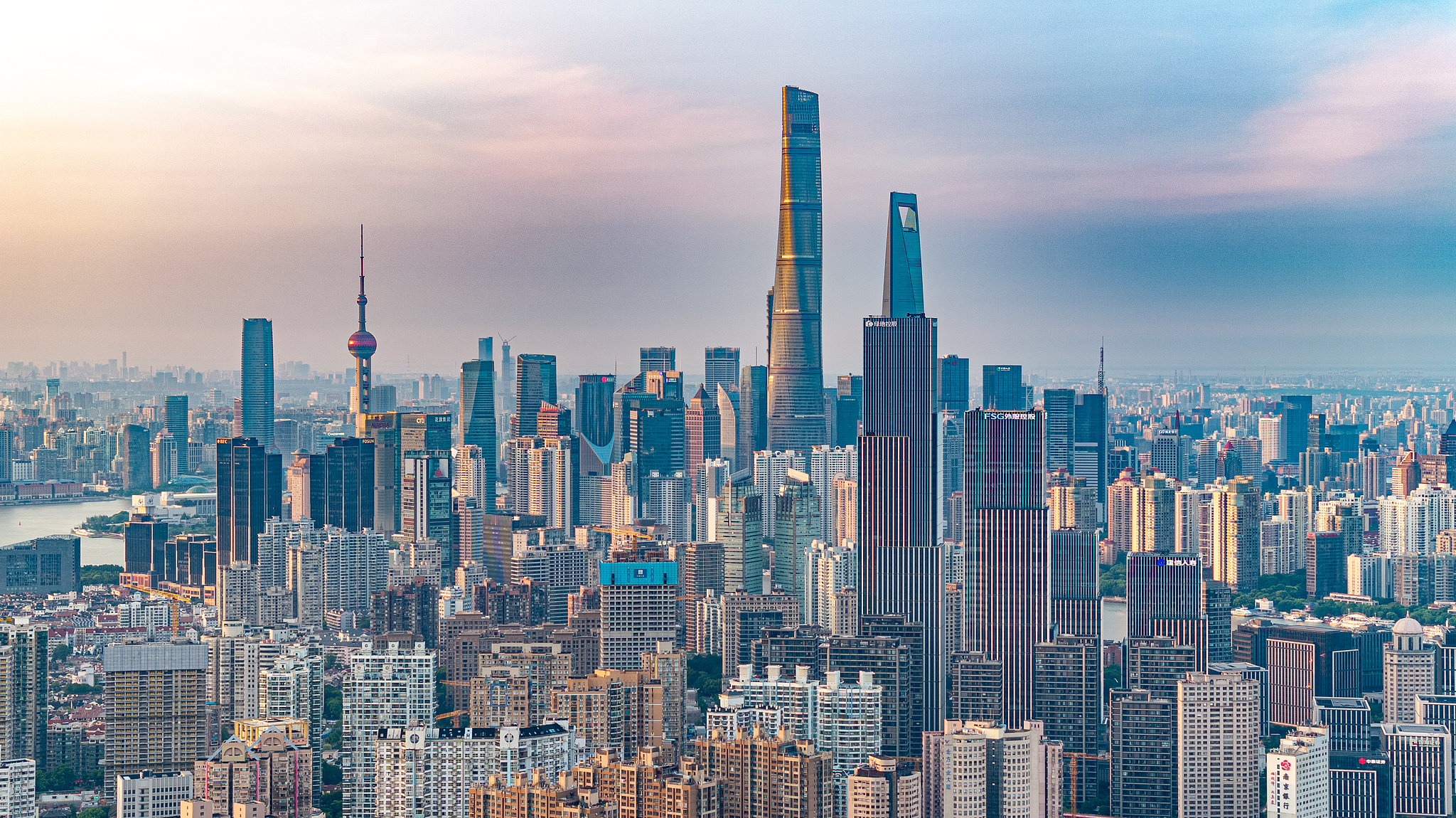

Editor's note: Lily Lyu is an anchor from the CGTN Business Department. The article reflects the author's opinions and not necessarily the views of CGTN.
A G1 robot of Yushu Technology, wearing the same red cotton-padded jacket as the 2025 Spring Festival Gala, is displayed offline in Hangzhou, Zhejiang Province, on March 22, 2025. /VCG
As I stand here in Boao, Hainan, the vibrant atmosphere of the Boao Asia Forum 2025 is electric. Inside the conference halls, heated discussions unfold as journalists scramble to interview heavyweight guests. Outside, the serene coconut groves and beaches offer a stark contrast to the intellectual fervor within. This is my third year attending and moderating at this prestigious forum, and each year, the discussions around technology have grown more urgent and relevant. This year, the topic of "Strengthening AI Application and Governance for Innovation-Driven Development" feels particularly timely, as Asia stands at the crossroads of transformation and opportunity.
The rapid rise of artificial intelligence and robotics has become a defining feature of this era. From humanoid robots dancing during China's Spring Festival to groundbreaking achievements of companies like Unitree Robotics in Hangzhou, the public's fascination with AI-driven technologies has reached new heights. Yet, the story of AI in Asia is not just about spectacle—it's about profound shifts in innovation, governance, and global competition. The recent success of DeepSeek, a Chinese AI model that achieved 20 million daily active users within 20 days of its launch, underscores this transformation. But what does this mean for Asia, and the world?
Citizens at the Future Science and Technology City exhibition hall to learn about DeepSeek's AI large model, Hangzhou, Zhejiang Province, China, on March 24, 2025. /VCG
DeepSeek: A Catalyst for Change
DeepSeek's emergence has been nothing short of revolutionary. It has not only challenged the global AI landscape but also redefined how nations perceive their roles in the AI race. For China, DeepSeek represents a milestone in technological self-reliance, proving that innovation can thrive even under intense geopolitical pressure. For the world, it signals a shift toward a more open and collaborative AI ecosystem. To quote Muhammad Aurangzeb, Finance Minister of Pakistan, during my interview with him, DeepSeek is a "game changer." And that AI capability building is particularly critical for developing countries. As one of my other interviewees, Mr Yuan Hui, Chairman and the CEO of Xiao-i, a Nasdaq-listed leading Chinese AI company, put it: "DeepSeek's breakthroughs in cost reduction and scalability are dismantling the economic barriers to AI adoption, making it accessible to industries and individuals alike."
However, DeepSeek's success is not just about technological prowess—it's about the triumph of open-source innovation. By democratizing access to AI models, DeepSeek has inspired other countries to rethink their AI strategies. This is particularly significant for Asia, where nations are increasingly viewing AI as a tool for economic growth and social development. The open-source model has leveled the playing field, enabling smaller economies to compete with tech giants and fostering a more inclusive AI ecosystem.
Yet, as Mr Yuan emphasized, "AI is not just a tool, it's a new species defined by humanity." This metaphor captures the dual nature of AI: a force for innovation and a challenge to governance. As AI systems grow more autonomous, the role of human engineers shifts from coding to calibrating—ensuring that AI evolves within ethical and societal boundaries. This is where Asia's opportunity lies: not just in developing cutting-edge technologies but in shaping the frameworks that govern their use.
The Asian Advantage: Innovation Meets Governance
Asia's unique position in the AI race stems from its ability to balance innovation with governance. Unlike the US, where AI development is largely driven by private enterprises, many Asian countries have adopted a more collaborative approach, involving governments, academia, and industry. This model has enabled rapid advancements in AI applications, from smart cities to healthcare, while addressing societal concerns such as data privacy and ethical AI use.
At the forum, several speakers highlighted the importance of integrating AI into national development strategies. For instance, one panelist noted that "AI is not just a technological revolution, it's a social and economic one." This sentiment resonates deeply in Asia, where countries are leveraging AI to address pressing challenges such as aging populations, urbanization, and environmental sustainability. To name a few, in China, cities like Hangzhou and Shenzhen use AI for traffic management, pollution control, and energy-efficient infrastructure. In South Korea, companion robots are being developed for dementia patients. And Singapore uses IoT and AI in water management.
'Asia in the changing world: towards a shared future' sub-forum of Boao Forum for Asia 2025, Boao, Hainan Province, China. /Pic provided by Lily Lyu
However, the path to AI-driven growth is not without obstacles. As Mr Yuan pointed out, "The real challenge lies in creating a sustainable AI ecosystem that balances innovation with regulation." During a session on AI governance, participants agreed on the need for a multipolar, inclusive, and bottom-up global institution involving diverse stakeholders. Others proposed a technical regulatory body, something similar to the ITU, and an economic policy framework to be developed as soon as possible. This is particularly relevant in Asia, where diverse political systems and cultural values complicate the harmonization of AI policies. The key, as many forum participants agreed, is to foster international collaboration while respecting local contexts.
Global Implications: Competition and Collaboration
DeepSeek's success has also intensified the global AI competition, particularly between the US and China. While the US remains a leader in foundational AI research, China's advancements in application and scalability have narrowed the gap. This dynamic has profound implications for Asia, which is increasingly seen as a battleground for AI influence. As one speaker noted, "the future of AI will be shaped not just by technological breakthroughs, but by geopolitical and economic alliances."
Yet, competition is only one side of the coin. The forum also highlighted the importance of collaboration in addressing global challenges such as climate change, healthcare, and education. AI has the potential to be a unifying force, enabling countries to share knowledge and resources for the greater good. As Mr Yuan stated, "AI is like air and water—it should empower all industries and all people."
DeepSeek application download page in Apple Store. /VCG
Looking Ahead: Asia's Role in Shaping the AI Future
As the Boao Forum reaches its climax, one thing is clear: Asia is poised to play a pivotal role in the AI revolution. The region's unique blend of innovation, governance, and cultural diversity positions it as a leader in shaping the future of AI. However, this leadership comes with responsibilities. Asia must not only advance its own AI capabilities but also contribute to global frameworks that ensure AI is used ethically and inclusively.
In the words of Mr Yuan, "The ultimate competition is not between nations, but between humanity and machines." The statement encapsulates the essence of our discussions at the Boao Forum for Asia. As we navigate the complexities of AI development and governance, we must remember that technology is a means to an end—not an end in itself. The true measure of success will be our ability to harness AI for the betterment of society, ensuring that it serves as a force for good in an increasingly interconnected world.
Beautiful scene out side Boao Forum venue, Boao, Hainan Province, China. /Pic provided by Lily Lyu
As I leave the bustling conference halls and step onto the tranquil seaside of Boao, I am filled with a sense of optimism. The discussions here have reaffirmed my belief in Asia's potential to lead the AI revolution. But more importantly, they have reminded me that the future of AI is not just about technology—it's about humanity. And in that regard, the journey has only just begun.
In closing, I'd like to honestly acknowledge that this article is completed with the assistance of AI, though standardized guidelines for AI use remain under development.